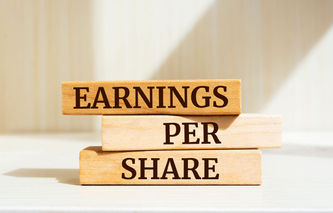Definition
The term antidilutive provision refers to agreements that protect investors from dilution in earnings or ownership that can occur when additional shares of common stock are issued. Convertible bonds and preferred stock, warrants and stock options can all lead to dilution of earnings as well as ownership in a corporation.
Explanation
Companies issue additional shares of common stock for a number of reasons. They're oftentimes issued as part of a comprehensive employee compensation program that includes stock option plans and warrants. They can also be issued as part of a merger agreement, or result from a conversion feature attached to preferred stock or bonds. These arrangements can become dilutive when the holder exercises a conversion right to receive shares of common stock. Once converted, the total number of shares issued by the company increases, and the ownership of all shareholders is reduced.
Also known as subscription rights or preemptive privileges, antidilutive provisions protect the existing stockholders from dilution by providing them with the right to maintain their ownership stake in the company through the purchase of a proportionate number of shares in the future. A ratchet provision allows existing investors to retain their ownership in the event new shares of stock are issued at lower prices, while a broad-based weighted average provision allows existing investors to purchase shares at a price that reflects both the original price per share and the price per share of new issues.
Example
Perhaps the most notorious example of investor dilution in the venture capital world is attributed to Facebook's Mark Zuckerberg. At one point, Eduardo Saverin (one of the company's original founders) owned roughly 34% of TheFacebook stock. In 2005, Mark Zuckerberg, along with Sean Parker, created a new company and authorized additional shares of stock to be issued at one-half cent per share without Saverin's consent or knowledge. These additional shares were then divided among existing partners, excluding Saverin. In doing so, his ownership of the company was diluted from 34% to less than 10%. Zuckerberg now had complete control over the operation of what would eventually become Facebook.






